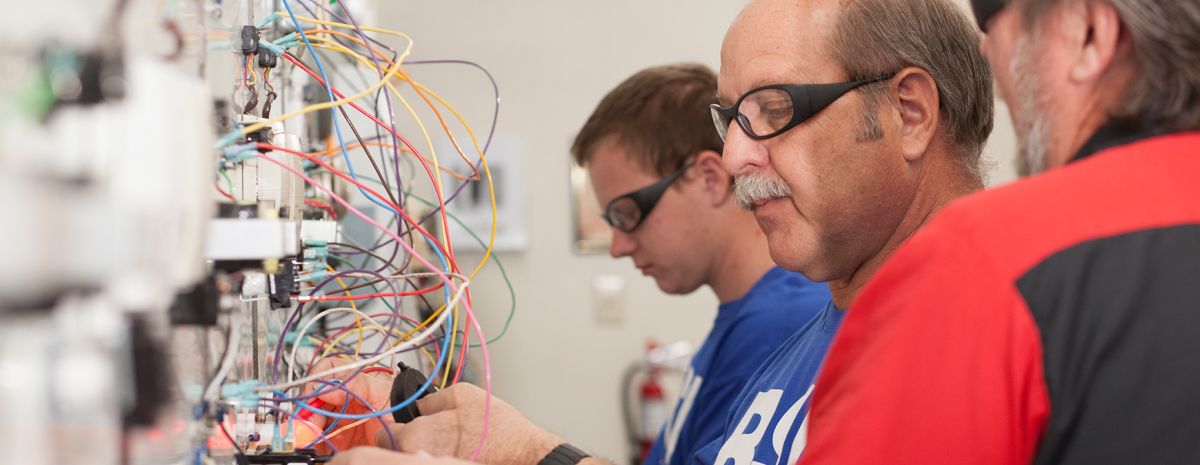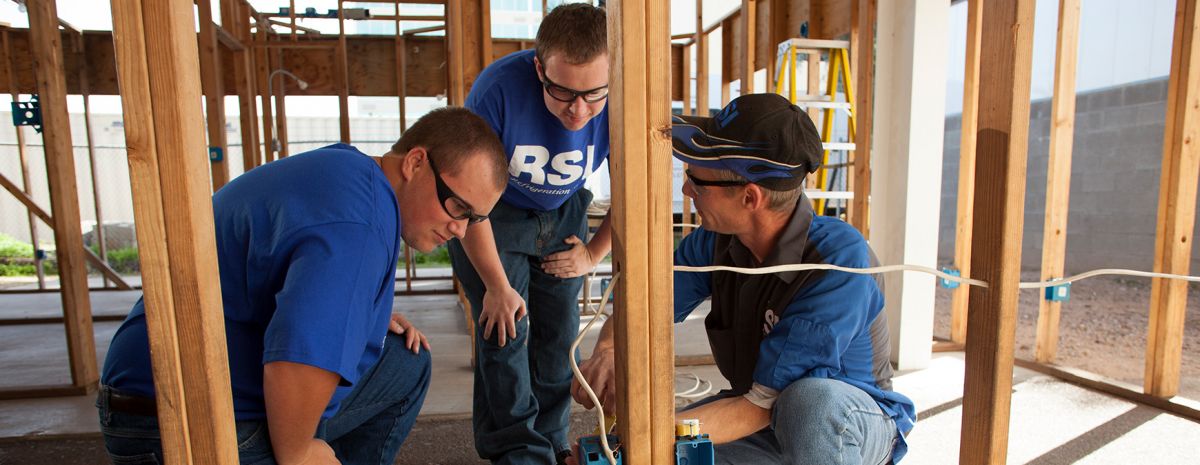RSI is a Great Training Option for Everyone
Learn more about how we can prepare you to advance your career.
For decades, a four-year degree was heralded as the best educational path for high school graduates. However, there are signs that more students are seeking other education options outside college. Undergraduate enrollment has been on a steady decline since 2012 as more students opt for alternatives to four-year institutions.1
At the same time, trade schools are seeing a boost in enrollment and even expect the growth to continue in the future.2,3 In fact, many degree holders are returning to school to pursue a career in the trades because of the rising demand for skilled labor and competitively high salaries – among other advantages that we’ll explore later.3
If you’re planning to head down the trade school path, you’re probably wondering what you can expect from these programs.
Why Do People Choose Trade School Over College?
Before diving into the specifics of trade schools, it’s helpful to understand what’s drawing more and more high schoolers into the skilled trades. When considering trade school vs college, this path has some significant advantages over four-year degrees.
Get Started on the Path to a New Career
Fill out our form to learn how we can help you change your life.
Lower Tuition Rates
The high cost of college tuition and the resulting financial burden on students are well-known problems in the US with no signs of slowing down. With 70% of college students worried about being able to pay for school, it’s no wonder so many people are starting to see the trades as a viable alternative. And the numbers just make sense.4 The average cost of a bachelor’s degree is $127,000 while the average trade school costs just $33,000.5
Quicker Entry Into the Workforce
Both college degree and trade school programs provide students with skills, knowledge, and qualifications to increase their competitiveness in the job market. However, there’s a considerable difference in the time it takes to complete either academic option. Around 60% of college students take six years to complete a bachelor’s degree, even though it only takes four years on paper.6
Alternatively, students can complete a degree program in a fraction of that time. Generally, trade schools last from less than a year up to just two years. For example, The Refrigeration School’s Refrigeration Technologies program lasts just six months.7 By attending a trade school, individuals can land a paid position quicker than their diploma-holding counterparts.
Greater Job Security
Another common reason people choose trade school over a four-year degree is improved job security. Nobody wants to dedicate years studying in a field only to struggle finding an open position. The essential nature of the skilled trades brings a higher level of job security than other roles. There’s no way to outsource the work performed by electricians, HVAC/R techs, welders, and other tradespeople. There’s even a current labor shortage in the skilled trades which means there are plenty of opportunities for trade school graduates.
What Can You Anticipate When Joining a Trade School?

Now that you know why people are choosing the trades over a traditional diploma, you’re probably wondering what to expect when attending trade school.
You Can Work While Finishing a Trades Program
If you’re already working or want to earn an income when attending trade school, you can find a way to make it work. In fact, 85% of students hold down paid positions while attending school.9 Many trades programs have flexible schedules with classes in the mornings, afternoons, evenings, and even on weekends to accommodate working professionals. It will take some organization, planning, and due diligence on your part, but there’s no reason you can’t work part or even full-time when completing a trades program.
You’ll Receive Real-World Experience
Trade schools emphasize hands-on, experiential learning instead of simply having students attend lectures and take exams. The real-world experience you gain during a trades program is designed to equip you with the skills and expertise you need to become a skilled tradesperson. Instead of covering broad capabilities and overarching knowledge, trade schools are hyper-specialized.7 This hands-on approach helps students remember 70% more of what they learn when compared to lectures.10
Common Challenges Faced at Trade School

Determining What Field to Pursue
One of the toughest decisions facing aspiring trade professionals is deciding which specialization to pursue. The skilled trades sector is composed of various professions including electrical, HVAC/R, and welding – just to name a few. Take the time to learn about the job description of each skilled trade and the skills required to pursue it to see which is right for you.
Covering the Cost of Attendance
Attending trade school is significantly cheaper than paying for a four-year degree, but it’s still a considerable financial investment. One of the biggest challenges students face is figuring out how to pay for refrigeration school. Fortunately, there are several loans, grants, and scholarships you can get to help offset or cover the cost of tuition that are available to those who qualify.
Finding the Right Trade School
There are plenty of trade schools across the country, but the quality of their programs varies greatly. Choosing the best trade school can put you in a better position to land a healthy salary after graduation. For over five decades, The Refrigeration School has equipped students with the hands-on experience, skills, and knowledge needed to succeed in the skilled trades. If you’re interested in learning more about our programs, call (480) 676-5843. One of our representatives will be happy to answer any of your questions.
Additional Sources
1https://www.npr.org/2019/12/16/787909495/fewer-students-are-going-to-college-heres-why-that-matters
2https://www.theatlantic.com/education/archive/2019/03/choosing-trade-school-over-college/584275/
3https://hechingerreport.org/more-people-with-bachelors-degrees-go-back-to-school-to-learn-skilled-trades/
4https://news.osu.edu/70-percent-of-college-students-stressed-about-finances/
5https://www.thesimpledollar.com/investing/college/why-you-should-consider-trade-school-instead-of-college/?utm_campaign=meetedgar&utm_medium=social&utm_source=meetedgar.com
6https://nces.ed.gov/fastfacts/display.asp?id=40
7https://blog.prepscholar.com/what-is-a-trade-school
8Finding My Trade | Schools And Scholarships For Electricians, Plumbers & HVAC Techs.
9https://www.us.hsbc.com/valueofeducation/
10https://www.psychotactics.com/art-retain-learning/
This blog has been labeled as archived as it may no longer contain the most up-to-date data. For a list of all current blog posts, please visit our blog homepage at https://www.rsi.edu/blog/





